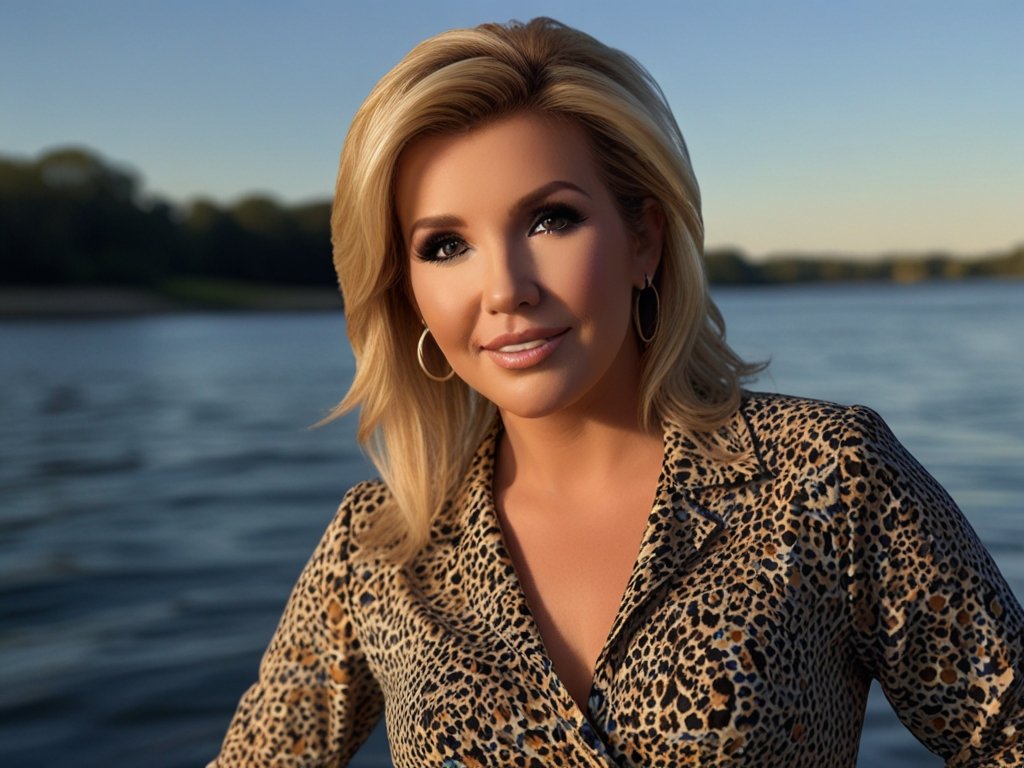Misinformation spreads quickly online, and one recent example surrounds the search query “Chrisley Knows Best daughter dies.” This sensationalized phrase gained traction in 2023, causing confusion among fans of the hit reality show. Despite the rumors, it is important to clarify that no daughter of Todd and Julie Chrisley has passed away. Both Savannah Chrisley and Lindsie Chrisley are alive and actively engaging on social media. This article aims to debunk the viral misinformation, explain its origins, and highlight the dangers of spreading false news.
The Origin of the Misinformation
The confusion surrounding “Chrisley Knows Best daughter dies” can be traced back to two unrelated events that were sensationalized by certain media outlets. First, the tragic death of Nic Kerdiles, Savannah Chrisley’s ex-fiancé, in 2023 led to clickbait headlines implying a Chrisley family member passed away. Many readers misinterpreted or skimmed these headlines, linking Nic’s death directly to Savannah or another Chrisley family member.
Second, an unrelated health scare involving Julie Chrisley was misreported, with some articles making it appear as though her condition involved one of her daughters. Julie’s health scare was not terminal and did not involve Savannah or Lindsie in any way. Together, these two incidents fueled baseless rumors, which quickly spread across social media platforms.
Debunking the Rumor
To put the rumor to rest, it is essential to emphasize that both Savannah and Lindsie Chrisley are alive and well. Their recent social media activity provides undeniable proof of this fact. Savannah has been actively posting updates about her life, her podcast, and her work, while Lindsie has shared moments with her family and her engagements with fans.
No credible source has confirmed or corroborated claims of a Chrisley daughter passing away. The keyword “Chrisley Knows Best daughter dies” is purely a case study of how misinformation and sensationalism spread online.
The Spread of Viral Misinformation
Clickbait headlines are among the biggest culprits in the propagation of rumors like “Chrisley Knows Best daughter dies.” Websites often create exaggerated or misleading headlines to attract clicks and drive traffic. This strategy prioritizes sensationalism over accuracy, fostering confusion among readers.
Social media further amplifies the spread of misinformation. Algorithms on platforms like Facebook, Twitter, and Instagram prioritize engaging and highly shareable content, even if such content lacks credibility. This reinforces the cycle of misinformation, as users unknowingly share inaccurate articles or posts without verifying their validity.
Why This Misinformation Spreads

Rumors like “Chrisley Knows Best daughter dies” spread rapidly due to a combination of factors:
- Sensationalism: People are naturally drawn to shocking or emotional stories, making them more likely to click on misleading headlines.
- Skimming Culture: Many readers only skim news headlines without fully reading the article, leading to misunderstanding.
- Social Media Algorithms: These algorithms prioritize content with high engagement, often pushing misinformation to the top of users’ feeds.
- Confirmation Bias: Some readers are predisposed to believe rumors if they align with their pre-existing views about the Chrisley family or reality television stars.
The Real People Involved
To better understand the context, it is helpful to review what Savannah and Lindsie Chrisley are currently up to. Savannah has been focusing on her podcast, “Unlocked with Savannah Chrisley,” which discusses a wide range of topics, including family dynamics and personal growth. Meanwhile, Lindsie Chrisley has remained engaged with her fanbase and continues to share aspects of her personal life, including her parenting experiences.
It is also worth noting that the Chrisley family has been dealing with real-life challenges, including legal issues involving Todd and Julie Chrisley. These legitimate struggles are often overshadowed by false rumors that detract from meaningful conversations about their lives.
How to Identify Misinformation
To avoid falling victim to viral misinformation, follow these tips:
- Fact-Check Sources: Verify the credibility of the website publishing the news. Reputable outlets are less likely to spread false information.
- Read Beyond the Headline: Headlines can be misleading. Make sure to read the full article to understand the context.
- Cross-Reference Information: Look for multiple sources confirming the same news. If only one outlet reports a story, it may not be reliable.
- Check Social Media Activity: Public figures often use social media to address rumors. Reviewing their recent posts can clarify whether claims are true.
- Be Cautious with Clickbait: Avoid sharing articles with exaggerated headlines, especially if they lack credible sources.
The Consequences of Spreading False News
Spreading misinformation, like the “Chrisley Knows Best daughter dies” rumor, can have serious consequences:
- Harm to Reputation: False rumors can damage the reputation of individuals or families, leading to unnecessary distress.
- Erosion of Trust: When people repeatedly encounter false information, their trust in news sources diminishes.
- Amplification of Negativity: Sensationalized headlines often overshadow important conversations or real issues that require attention.
Being responsible online means thinking critically about the information we consume and share. By actively combating misinformation, we can foster a more informed and respectful digital community.
Sharing Accurate Information Matters
The “Chrisley Knows Best daughter dies” rumor serves as a reminder of the dangers of viral misinformation. No daughter of Todd or Julie Chrisley has died; the rumor is entirely false. Instead of succumbing to sensationalized headlines, take the time to verify information and contribute to the spread of accurate news.
By staying informed and responsible, we can collectively reduce the impact of misinformation. If you found this article helpful, share it with others to promote awareness and contribute to a more trustworthy online environment.
In conclusion, combating misinformation requires diligence, critical thinking, and a commitment to truth. By verifying sources, questioning suspicious claims, and sharing accurate information, we can all play a part in fostering a more reliable digital space. Together, we can mitigate the harm caused by false narratives and ensure that facts prevail over fiction.
YOU MAY ALSO LIKE
Shannon Reardon Swanick’s Remarkable Leadership and Vision
FAQ
1. Has a Chrisley daughter passed away?
No, neither Savannah nor Lindsie Chrisley has passed away. Both are alive and active on social media.
2. What caused the “Chrisley Knows Best daughter dies” rumor?
The rumor originated from confusion surrounding Nic Kerdiles’ death and misreported health issues involving Julie Chrisley.
3. How can I verify if rumors like this are true?
Fact-check with credible sources, read beyond headlines, and review social media activity for public statements.
4. Why is misinformation so prevalent online?
Social media algorithms, clickbait headlines, and skimming culture contribute significantly to the spread of false news.
5. What can I do to stop misinformation?
Critically analyze information, avoid sharing unverified articles, and encourage others to fact-check before spreading rumors.











